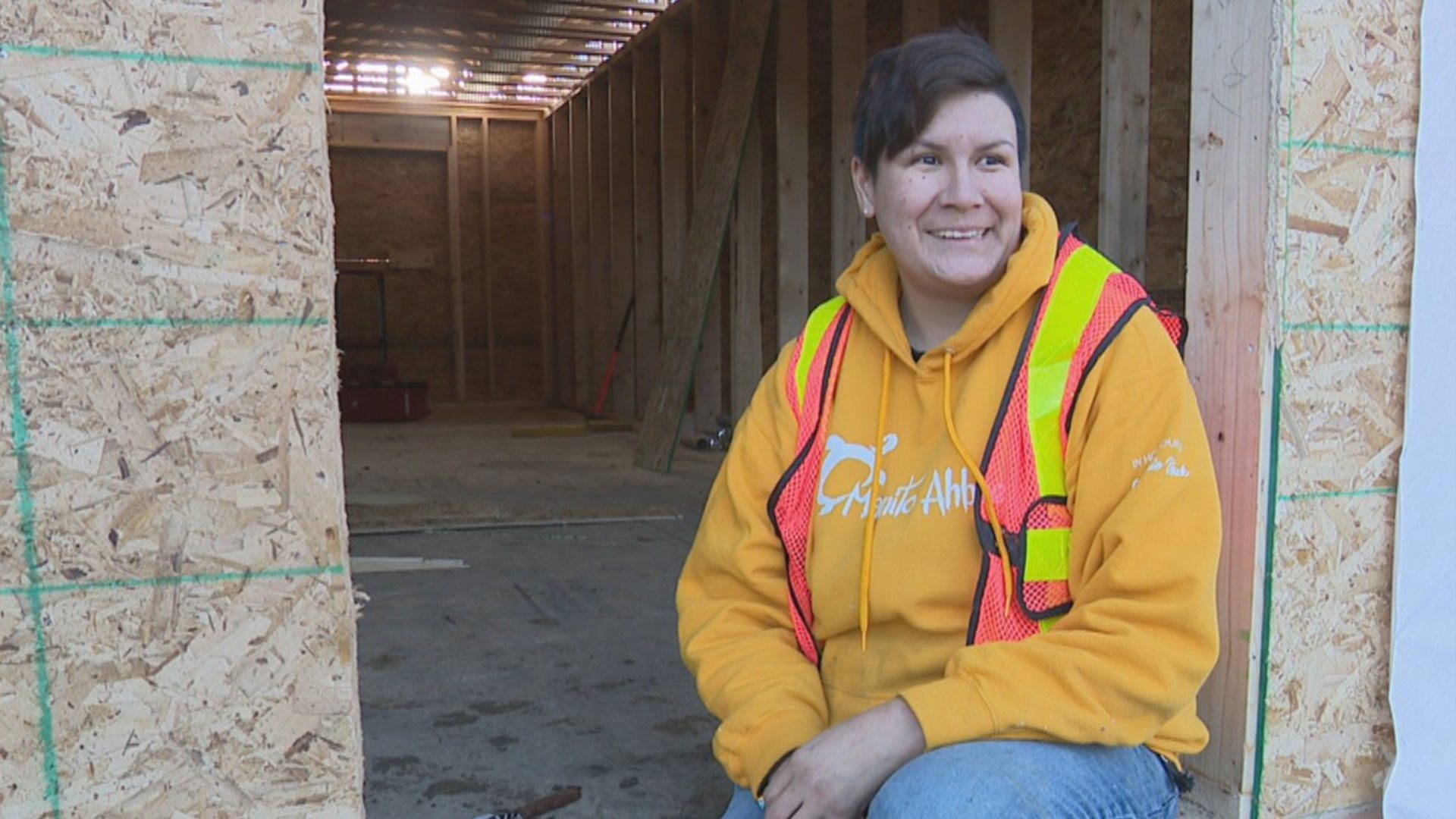The non-profit organization Purpose Construction provides on-site job experience to First Nations, Metis, and Inuit trainees who’ve had involvement with the criminal justice system and are currently receiving income assistance through their ‘Purpose Homes’ program.
“I’m very grateful because as a teenager this is something I wanted to do before taking that other path to drinking, doing drugs, and involving my life in gang affiliation which was me not being grateful and making mistakes in my life,” says Wolf Swan, who is a two-spirit woman and uses they/them pronouns. Swan is part of a ‘from the ground up’ new house build.
“For the folks who have had involvement with the justice system, it’s really hard for people to get a job,” says Sara Atkinov, Purpose Construction’s casework and communications person.
She says many workplaces do criminal record checks or stigmatize those with a criminal history, no matter how long ago it may be.
“We want to provide opportunities for folks because we don’t think that it is necessarily what they’ve done, but what they can do,” she says.
Participants learn how to build homes with their own two hands through skills like framing, siding, drywalling and carpentry and are provided important safety training in WHMIS, First Aid, and Fall Arrest.
In the end, the homes go back to the community as affordable housing.
Program participant Michael Hotomani is currently working in Winnipeg’s North End, renovating a 3-suite unit that will house Indigenous women with children and youth aging out of foster care.
“You know, it’s something I can actually be proud of and something I can actually tell my kids about instead of … every other year getting locked up, spending time in jail,” says Hotomani, “Now I get to go home and see my kids every day and get to tell them what I’m doing and being excited, knowing that I don’t have to hide my life no more.”
He says it’s helpful working with other people who he can relate to.
“We’re just being supportive of each other and knowing that where we came from kind of gives us all someone to lean on, right? Because we’re all struggling with the same thing,” says Hotomani, “It’s really good to have someone to talk to about it.”
He adds the program is full of great people.

“All you need is just people willing to give you the time,” says Hotomani.
“I’m very strong when it comes to working around males. It can be very difficult being the only female but I’m finding that working with them I am actually teaching them how to work around women … which is very beautiful,” says Swan.
Finding an outlet to occupy their time was important for maintaining sobriety and continuing their spirituality.
Swan says they would be honored to bring back their new skills to their reserve of Manitoba First Nation and other rural communities.
“It is something I can actually be proud of. I’m learning actual skills that I can carry out for a lifetime,” says Swan, “It’s going to continue to give me that meaning and purpose that I am doing something that I really want to do by giving back to the community – that makes me feel really good.”
Swan says when they first started the training program, they were having trouble finding time for their spirituality. A quick conversation with Atnikov changed that, and they were encouraged to smudge at work whenever they needed.
“The fact that I can smudge on site and that Purpose [Construction] allows that? I am so happy,” says Swan.
The program also offers the ability to attend sweat lodges, will soon have an Elder for participants to talk to, and provides wrap-around supports like resume writing.
Though Purpose Construction may be helping change lives, Atkinov says it’s the participants who truly make the program great.
“It is so much more about the people who show up every day and who don’t have the same access to opportunities that, you know, you and I or other folks might,” says Atkinov, “They’ve made the decision that they want to sort of go into a different direction and that’s really scary and that’s really big and I don’t think people get enough credit for it. So, I think the thing that I’m most proud of is the folks who are in our program.”









